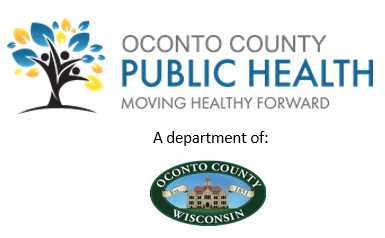DHS Reminds Wisconsinites to Protect Themselves as Cases of RSV and Respiratory Viruses Increase
Now is the time to get influenza, COVID-19, and RSV vaccines for best protection ahead of holidays
The Wisconsin Department of Health Services’ (DHS) most recent weekly Respiratory Virus Surveillance Report shows that flu, COVID-19, and RSV cases are increasing, with the state especially seeing an increase in hospitalizations of young children infected with RSV.
“Respiratory illnesses increase during the colder months as we spend more time indoors,” said Respiratory Disease Epidemiologist Tom Haupt. “Our current data show that we are starting to see a rapid increase of RSV, alongside increases in both influenza and COVID-19. This is a sign to all of us that now is the time to get vaccinated to get the best protection ahead of holiday activities and gatherings, and to take additional steps to prevent the spread of illness including staying home from work, school, and other gatherings if you are sick.”
Seasonal flu and COVID-19 vaccines are recommended for everyone 6 months and older. Pregnant people, parents of children under 19 months, and adults over 60 should talk to their doctor about RSV vaccines and preventive treatments.
“Getting vaccinated now will help your body build protection against these viruses and can prevent you from getting sick or spreading the virus to others, or can keep your symptoms mild if you do get sick,” said Wisconsin Immunization Program Manager Stephanie Schauer. “This is especially important for older people, those with chronic health conditions, those who are pregnant, and young children.”
Data from the DHS Influenza Vaccine Dashboard shows 20% of Wisconsinites have received a flu shot this season. Data from the DHS COVID-19 Vaccine Dashboard show only 7% of Wisconsinites have received an updated COVID-19 vaccine.
Influenza and COVID-19 vaccines are reported to be in good supply statewide and supplies of pediatric COVID-19 vaccine continue to arrive at health centers and clinics. National shortages of RSV preventive treatment for infants (nirsevimab) continue to impact Wisconsin. Health care providers are asked to prioritize infants at highest risk of severe illness, and pregnant people are reminded that getting the RSV vaccine can protect infants once they are born.
In addition to getting recommended vaccines, other things you can do to prevent respiratory illnesses include washing your hands regularly, cleaning surfaces, and taking good care of your body. This also includes getting good sleep, drinking plenty of water, managing stress, and exercising regularly.
When planning holiday celebrations, remember that respiratory viruses spread more easily when people are gathered indoors. If you are feeling sick, get tested. Talk to a doctor about getting tested for COVID-19, influenza, RSV, or other respiratory viruses. Wisconsinites can still order free at-home COVID-19 tests from the federal government. If you are sick, stay home. Especially if you test positive or have symptoms of COVID-19, flu, or other illnesses. This helps protect others, especially those who are most vulnerable.
Visit the DHS website for up-to-date information about COVID-19, the flu, and RSV. Additional information about the 2023-2024 respiratory season can be found in the DHS Weekly Respiratory Report.
